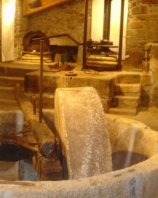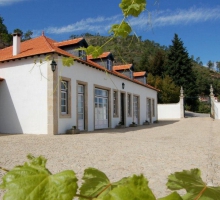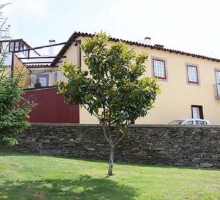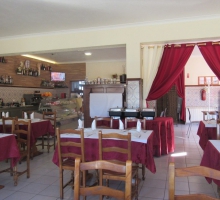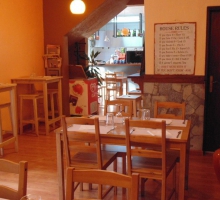In Póvoa de Penela there were three mills, but this was the only one that was preserved, being a living memory of the relevant uses and economic practices in this region, in particular of the traditional olive oil preparation techniques. Belonging to the Marçal family, the mill was used by all upon payment of a percentage of olive oil - the "maquia". In the seventies, the mill ceased to work completely and in September 2001 it was put at the service of the community, and was donated to the Parish Council. After its recovery, the preservation of the memory of a modus vivendi was guaranteed for future generations, in a region known for its abundant olive oil. Thus, the olive oil preparation mechanisms that used only the driving force of animals to move the millstones, and that of men to move the screw press, are perpetuated in time. The olive oil cycle would start in the olive groves, with the harvesting of olive trees. After the olive picking, it was taken into the mill and went into the stage of milling, where the fruit was thrown into the mill and, by the force of the grinding stones, driven by two oxen, was crushed and turned into mass. Then it would move to the pressing stage, and the mass was placed within the "ceira" and was then subjected to the pressure of the screw press and also subjected to the "caldas" (pouring of boiling water), thereby releasing the oil from the mass - decanting. The olive tree (oil europea), its fruit and especially its juice, az-zait, were at a stage, of great importance at global level, over several centuries, decisively influencing the world culture and, in particular, the diet. The mill consists of a large stone sink with two cylindrical millstones (or "galgas") and a tow bar (beam) attached to them, to which was attached a yoke of oxen that made it move in a rotating motion. This Museum Centre is just another unit that preserves the memories and ancestral knowledge of a whole people that with work, effort and humility, was able to mold this territory between the Beira and the Douro.
Visits must be previously scheduled by calling the Parish Council number 254 549 276.
Location: Penedono
